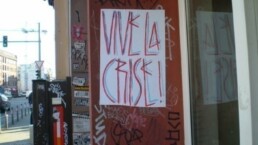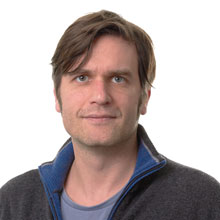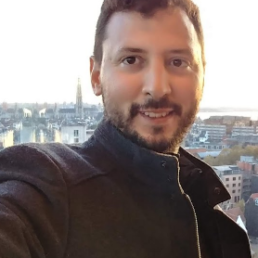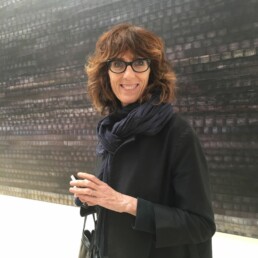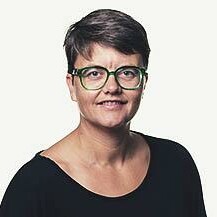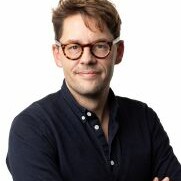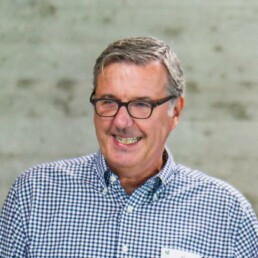Mapping
Entrepreneurial
Neighbourhoods
A European Haniel Program Summer Academy
May 17–21, 2021.
Joint kick-off: 06.05., 16–18
“If the city is a text, how shall we read it?”
Joyce Carol Oates, Imaginary Cities: America
“The city is not only a text to be decoded, it is also a space to be written.”
Graeme Gilloch, Myth and Metropolis
“In a dérive one or more persons during a certain period drop their usual motives for movement and action, their relations, their work and leisure activities, and let themselves be drawn by the attractions of the terrain and the encounters they find there.”
Guy Debord, Theory of the Dérive
At the beginning of the 21st century, cities are, once again, at the center of intellectual and political attention and debate. Cities are laboratories for the configurations and significations of (post-)modernity, brimming with creativity and entrepreneurship. Nowhere are there so many potential fields of interaction as in the urban habitus: potential specialist or different vocations, dispositions or lifestyles will find articulations somewhere within urban spaces. Simultaneously, cities are the first to sense and to respond to new changes, whether economic, political, cultural, social, or religious. In an ongoing process of social formation and deformation, participants of urban life invent ways of making their voices heard. Urban spaces are contested arenas where a multiplicity of interests, perspectives and discourses make their claims.
When urban spaces become the focus of inquiry, they tend to be perceived as architecturally built environments, physical containers for human conduct, put into place and remodelled by city planners and builders. By focussing on the distilled material forms, however, the dynamic production and reproduction of city space is too often left aside.
Departing from simple but detailed and personal yet reflected experiences of urbanity, we will focus on theories and observations which allow to understand the city as a geographic, discursive, cultural, social, and above all, affective and atmospheric space. We will inquire how the ordering and organization of urban life is continuously forged and challenged where new possibilities for work, citizenship and lifestyle emerge. There is movement and change, desires and passions, tensions and conflicts, politics and ideology that shape and reshape a city (and are shaped and reshaped by it in return). Studying urban spaces thus presents a potentially endless variety of observations, exemplifications and interpretations as well as potentially-to-be-written stories that re-vision and change the images and representations of public life in our cities.
In this year’s Academy, the city will be looked at as “inventive and creative spaces of affects and atmospheres” with surprising possibilities and perpetual uncertainties where creativity, entrepreneurship and innovation become realized in specific neighbourhoods. Often, this entails the contestation of established urban realities and (re)constructions of urban publics, which bring along such different affects as hope, anxiety, frustration or liveliness. This year’s course will focus especially on the multiple atmospheres and affects through which the neighbourhoods of various European cities can be experienced and felt, and lived and enlivened as they cope with multiple challenges (e.g. increasing tourism, gentrification, refugees, pandemic and ‘social distancing’) and respond locally with inventive and entrepreneurial dynamics. We ask the question how city life is differently produced and organized through various affects, rhythms, intensities, sensations and atmospheres as we walk different neighbourhoods of the city or get involved in some of its new activities or entrepreneurial projects.
With the various European cities (Berlin, Copenhagen, Paris, Venice and Zürich) as empirical base, teams of students are expected to conduct small ethnographic field studies by looking for and identifying themes in connection with various affective qualities and intensities that move and bring movement to urban life, its people and creative projects. Studying urban life through atmospheres and affective cartographies can be done through, for example, interviews, observations, pictures, sound recordings and video-takes, drawings and maps, reports and articles; the teams will then transform their empirical work into stories and performative accounts of affective and atmospheric space, by comparing the fieldwork from different European cities and so contributing to the affective cartography of Europe’s entrepreneurial neighbourhoods. As different projects are joining together their mappings and stories, the colours, sounds and rhythms of this creative cartography of affects and atmospheres comes alive.
Course Schedule
09:00-09:15
Checking in with ‘coffee’
09:15
Introduction of methodological practices
10:00-10:30
Break out groups: Preparing methodological exercises
10:30-11:45
Fieldwork
11:45-12:15pm
Checking-in, thick description
01:15-02:15pm
Exchange and joint reflection in break out groups
02:15-02:30pm
Field work group-meeting
01:15-02:15pm
Fieldwork
01:15-02:15pm
Checking-in and social hour
09:00am-03:00pm
Fieldwork (virtual/local support)
03:30-05:30pm
Conceptual discussions and reflections (mixed)
Break out groups: Develop a conceptual map based on reading each other short papers
05:30-06:30pm
Checking in and social hour
09:00am-05:30pm
Fieldwork with virtual and local support
05:30-06:30pm
Checking in and social hour
09:15am-03:00pm
Data-analysis and storyboard
03:00-04:00pm
Mixed group exchanges
04:00pm-
Developing and rehearsing preparation
09:00-11:00am
Finalization presentations
12:00-04:00pm
Guided Mappings
04:00-05:00pm
Closure
Faculty and Speakers
Timon Beyes is Professor of Sociology of Organisation and Culture at Leuphana University Lüneburg. He is a director of Leuphana University’s Centre for Digital Cultures, and holds a fractional professorship at the Department of Management, Politics and Philosophy, Copenhagen Business School, Denmark. He has a background in Sociology and Management Studies and has done his doctoral and post-doctoral research at the Institute of Sociology and the School of Humanities and Social Sciences, University of St.Gallen, Switzerland. His research focuses on the spaces, technologies and aesthetics of organization in the fields of media culture, art, cities as well as higher education.
Antoine Blanc is assistant professor of Strategy and Organization Theories at Paris-Dauphine University PSL. He is a member of the DRM Laboratory (UMR CNRS). He is the co-director of the Post-Master Humanities and Management. He teaches Organization Theories, strategy and qualitative methods for master and PhD students. His research interests are related to institutional dynamics and discourse analysis in cultural industries. His has published several book chapters and research articles in journals such as Technological Forecasting and Social Change.
Monica Calcagno is associate professor of Design and Innovation management at Ca’ Foscari University of Venice, Department of Management. Co-founder of the laboratory on Management of arts and cultural activities (m.a.c.lab), and coordinator of Master’s degree curriculum in Innovation and marketing. Her research interests refer to the following main topics: innovation from the engineering turn to the rhetoric of creativity, design attitude in management education, user language and narratives in exhibition contexts, archives and the process of organizing, cultural entrepreneurship and social innovation. She teaches courses on Design and innovation management, and Management of cultural organisations. Among her most recent publications, “Interpreting innovation. Design creativity art” published in 2017 and a contribution on “Innovation” in Timon Bayes and Jörg Metelmann (edited by) “The Creativity Complex. A Companion to Contemporary Culture” in 2018.
Lydia Jørgensen is a post doc at the Department of Management, Politics and Philosophy (MPP), CBS. Lydia’s areas of research centers on atmosphere, space, design and organizational aesthetics, a.o. in relation to aesthetic modulation of the social, the senses and the political. Further, she is interested in and works with experimental qualitative methodologies and performative research. Her recent publications include ‘The Theatricality of Organizational Atmosphere’ (2020) and ‘Organizations, atmospheres and digital technologies’ (2019).
Maximilian Schellmann, PhD, is currently PostDoc at the Copenhagen Business School, Department for Management, Politics and Philosophy and visiting lecturer at the University St.Gallen His research interests include Migration Studies, Urban Studies, Organization Theory, Cultural Entrepreneurship and Aesthetics. Last publications: ʺThe Politics of Organizing Refugee Campsʺ (2018), CBS [PhD]; ʺStageʺ (2018), in: The Creativity Complex, T. Beyes & J. Metelmann [Eds.]. Transcript.
Chris Steyaert is Professor for Organizational Psychology at the University of Sankt Gallen. He has published in international journals and books in the area of organizational theory and entrepreneurship. He is teaching courses on creativity in relation to the field of team dynamics, entrepreneurship and urban creativity, and experiments with pedagogical approaches drawing up aesthetic forms such as drama, dance, design, documentary and (digital) display. He edited the Routledge Companion to Reinventing Management Education (2016) with Timon Beyes and Martin Parker.
